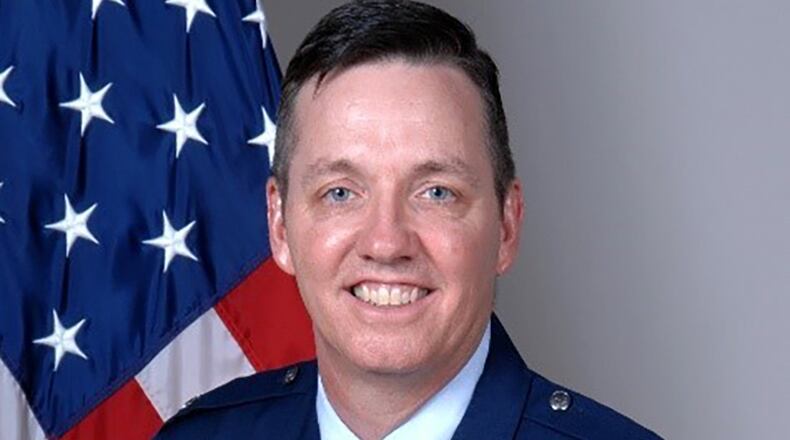As I was weed-eating, I couldn’t help but watch him on the riding mower. He was driving much too fast, not going in the right direction, cutting corners and missing areas of grass with no intention of correcting these obvious errors. I chased him down and kicked him off the mower. I started “lecturing” him for doing a poor job, not taking pride in his work, and sent him back to the house.
As I started to re-mow what he had already completed, I quickly realized my son had actually been doing a really good job and was helping me accomplish something. The only thing he had done “wrong” was to not do it the way I would have done it.
Fast-forward to spring 2019, I had just received orders to Wright-Patterson Air Force Base to be the 88th Diagnostics and Therapeutics Squadron commander. The first thing on everyone’s mind was, “Why is a medic going to command a Defense Travel System squadron. Wouldn’t somebody from finance be a better option?”
I explained DTS stood for Diagnostics and Therapeutics Squadron, which was then followed by, “Why would the Air Force send an optometrist to be in charge of the pharmacy, radiology, lab and nutritional medicine?”
I reassured the doubters that in my career I had taken medications, had bones X-rayed, donated blood and knew how to eat – therefore, I met all the required qualifications.
What links these two stories together? There will be a time in your career, whether officer, enlisted or a member of our civilian force, when the Air Force asks or circumstances dictate that you be a leader. And when this happens, you may be in a situation where you don’t have the professional or technical expertise of those you supervise. What will you do?
As a commander, a senior enlisted leader or a first-line supervisor, we are not here to sit on our Airmen’s shoulders and tell them what to do and how to do it every step of the way. Our responsibility is to hire or train well-qualified, skilled Airmen to get the job done. If we have done this right, those Airmen will be just as or more qualified than we are to accomplish the job they were hired and trained to do.
Once we have trained our Airmen, a primary role of leadership is to set objectives, provide guidance, define limits and parameters, and establish goals. With training and direction, our Airmen understand we have trust that they will find the path to success. Without that trust, all we create is low morale, poor communication, lack of innovation and risk aversion. As the CSAF stated in his “Accelerate Change or Lose” paper, empowered Airmen can solve any problem. And remember, our success depends on their success.
So, to circle back to my story. When I meet every new Airman who is assigned to the 88th Diagnostics and Therapeutics Squadron, I let them know that they are the expert at what they do and we will all be in big trouble if an optometrist has to fill a prescription, shoot an X-ray, draw blood or prepare a meal. The countless innovations and ability to get the job done exhibited by these fine Airmen during the COVID-19 pandemic has proven that the trust placed in them is reciprocated exponentially.
A few months ago, I told my son how I often tell the lawn-mowing story. I thanked him for teaching me a valuable lesson and how it shaped the way I try to lead. Just like all kids, he said something to the effect of “That’s pretty cool, but I don’t remember that.”
About the Author
